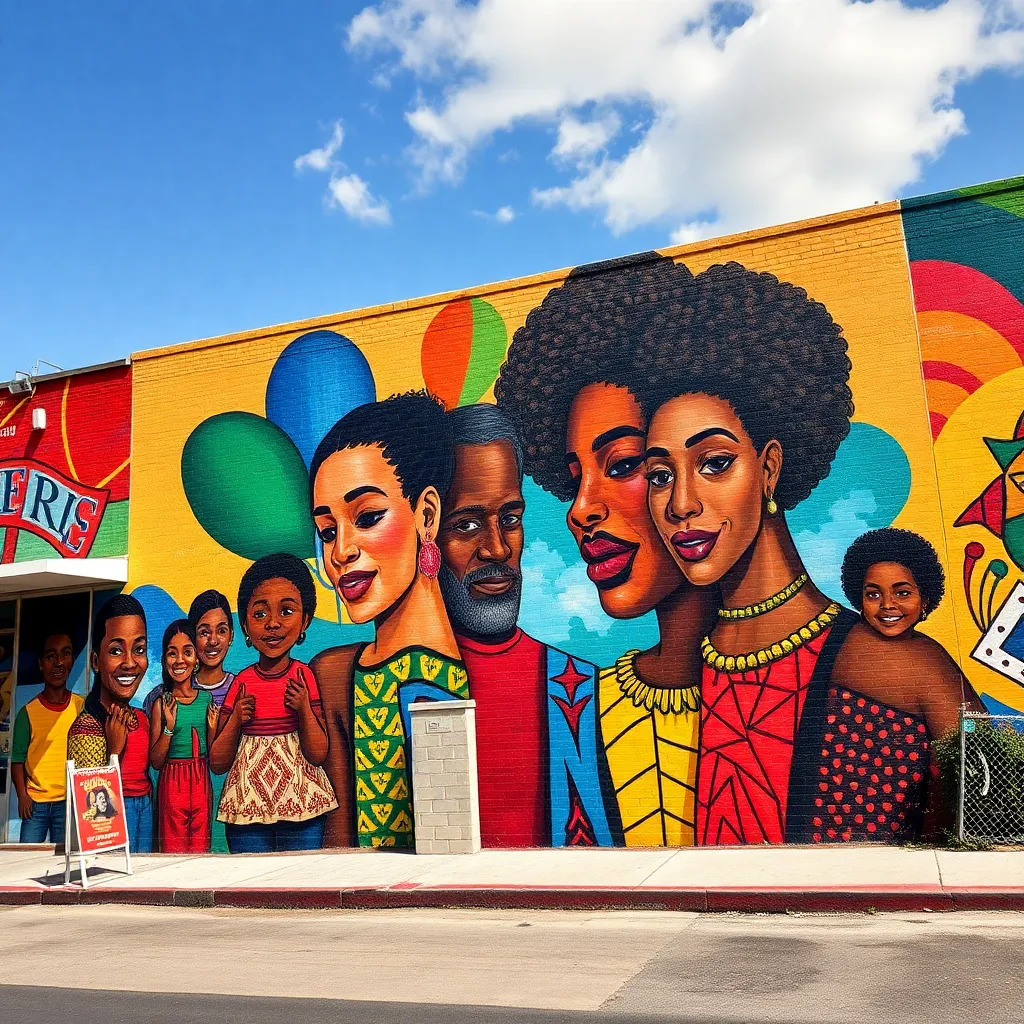Revitalization of History: The YMI’s New Era in Asheville
Asheville is a city rich in history and cultural diversity. Nestled in the heart of downtown stands the Young Men’s Institute (YMI), the oldest African American Cultural Center in the United States. Originally established in 1895, the YMI has significantly influenced the African American community throughout generations, particularly within the historical Black business district known as The Block.
A Vision for the Future
Recently appointed Executive Director Rev. Sean Hasker Palmer has ambitious plans for the YMI. He believes that the story of the YMI is not only important but needs to be actively shared and celebrated. “The YMI has a story to tell,” Rev. Palmer reflects, “and the first thing we must do is listen to all the ways people have interacted with the YMI over the years.”
This historic institute has always been a cornerstone of hospitality and wellness. For years, it provided accommodations for artists, sports figures, and professionals who struggled to find hotels that would rent to Black guests. It also served as a community hub for health services, with doctors’ offices, screening clinics, and even a swimming pool that catered to a community often excluded from other public facilities.
Continuing the Legacy
However, Rev. Palmer acknowledges a significant challenge—many people are unaware of the YMI’s legacy. His goal is to transform the YMI into a vibrant center of education, hospitality, and creativity, where the contributions of African Americans are recognized and celebrated. “I want the YMI to be a place of creative genius, education, and learning,” he emphasizes.
The YMI has, for decades, played a crucial role in education. It housed the city’s segregated library branch for over thirty years and offered after-school tutoring programs. The building itself is a cultural hub, having hosted art galleries that showcased African American artists, a youth jazz band, and various music disciplines.
The Heart of the Community
Throughout its history, the YMI has doubled as a business incubator. Numerous entrepreneurs, from hair salons to nonprofits, have began their journeys within its walls. It has served as the pulse of The Block and the broader Asheville Black community. As Rev. Palmer further notes, “The YMI holds an intentional need to share its story, not just for community pride but to enhance its prestige in present times.”
It’s fascinating to note that Asheville’s YMI holds a distinguished place in the landscape of Black Cultural Centers across the United States. Rev. Palmer, who also serves as Vice President of the Association for Black Culture Centers, recognizes the uniqueness of this institution. “There are just a few independent African American cultural centers, and none older than the YMI,” he explains.
Unearthing Hidden Histories
Palmer is passionate about uncovering the stories of the ‘Affrilachian’ people and their hidden histories in the region. There have been Black communities in the area, often overlooked, dating back to the 1700s and 1800s. “Many people mistakenly think that the Biltmore House was solely built by white labor,” he states. Yet, Black masons and builders played significant roles in its construction.
The work of scholars such as Cynthia Greenlee and Frank X. Walker illustrate the importance of discussing and documenting these histories. Rev. Palmer aspires to make the YMI a premier place for such inquiry and representation. “My vocation in life is to tell Black people stories about Black people,” he says passionately.
A Living Space for All
Rev. Palmer envisions the YMI as not just a museum, but a “living room” for the community, a third space where individuals can gather, learn, and connect. This vision aligns perfectly with his experiences and qualifications, which include leadership roles in various cultural centers and a focus on community engagement.
In rebuilding the YMI, Rev. Palmer is keen on integrating wellness—physically, intellectually, and emotionally—through various community activities. “Imagine a space alive with people coming in and out, sharing experiences, and creating an environment filled with opportunities for learning and growth,” he enthuses.
Looking Ahead
With the support of public and private funding, along with a dedication to meeting the needs of the community, Rev. Palmer is ready to usher in a new era for the YMI. In doing so, he hopes to preserve history while ensuring that the vibrant stories of Asheville’s Black community continue to thrive, making it clear that this isn’t just a place of history; it’s a powerful, living part of the culture today. “Let’s make sure the YMI is a place where Black history is not just remembered, but celebrated,” he passionately concludes.
As we welcome Rev. Palmer to Asheville, it’s exciting to think about the future of the YMI and its potential to serve as a beacon of community, culture, and history for many more years to come.

Author: STAFF HERE ASHEVILLE WRITER
The ASHEVILLE STAFF WRITER represents the experienced team at HEREAsheville.com, your go-to source for actionable local news and information in Asheville, Buncombe County, and beyond. Specializing in "news you can use," we cover essential topics like product reviews for personal and business needs, local business directories, politics, real estate trends, neighborhood insights, and state news affecting the area—with deep expertise drawn from years of dedicated reporting and strong community input, including local press releases and business updates. We deliver top reporting on high-value events such as the Asheville Bread Festival, LEAF Festival, and mountain sports tournaments at Biltmore Estate. Our coverage extends to key organizations like the Asheville Area Chamber of Commerce and Explore Asheville Convention & Visitors Bureau, plus leading businesses in hospitality and brewing that power the local economy such as the Biltmore Estate and Sierra Nevada Brewing Company. As part of the broader HERE network, including HERECharlotte.com, HEREGreensboro.com, HERERaleigh.com, and HEREOBX.com, we provide comprehensive, credible insights into North Carolina's dynamic landscape.





